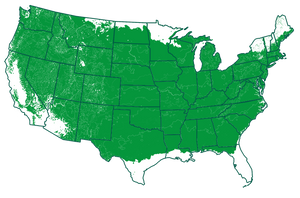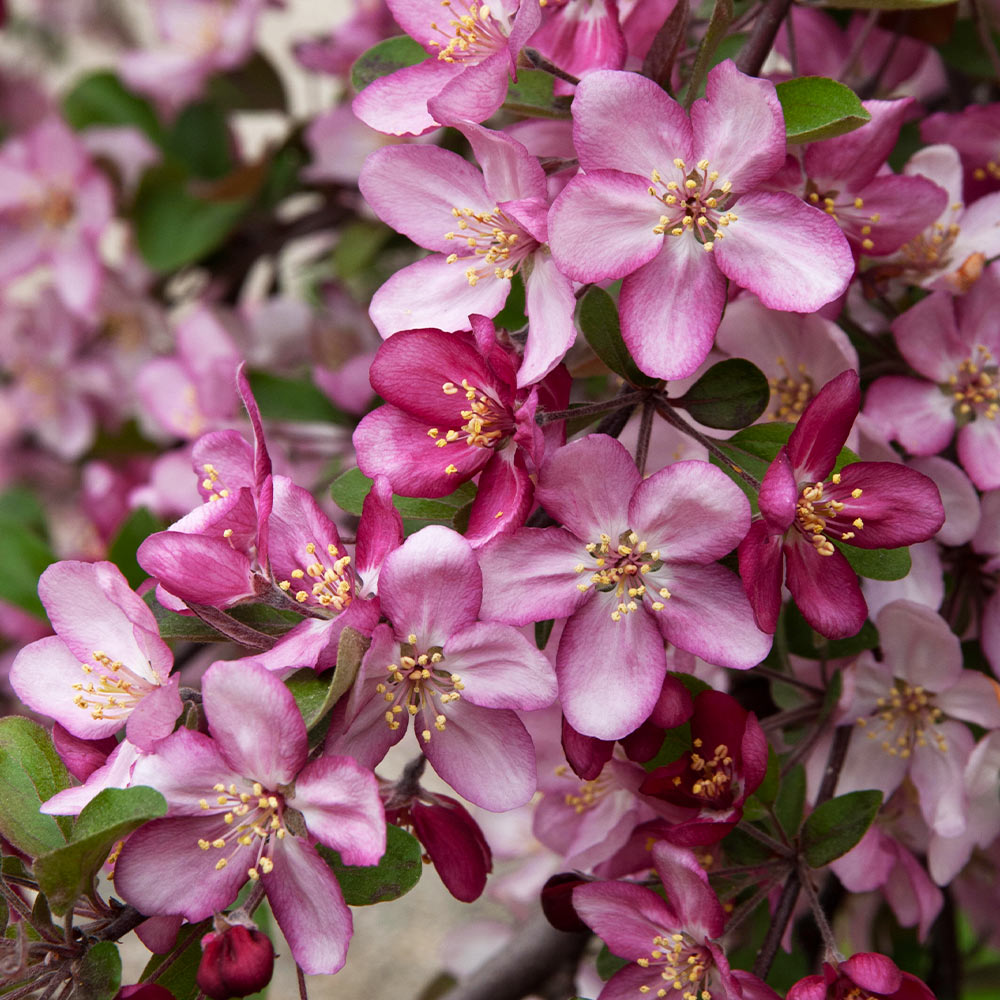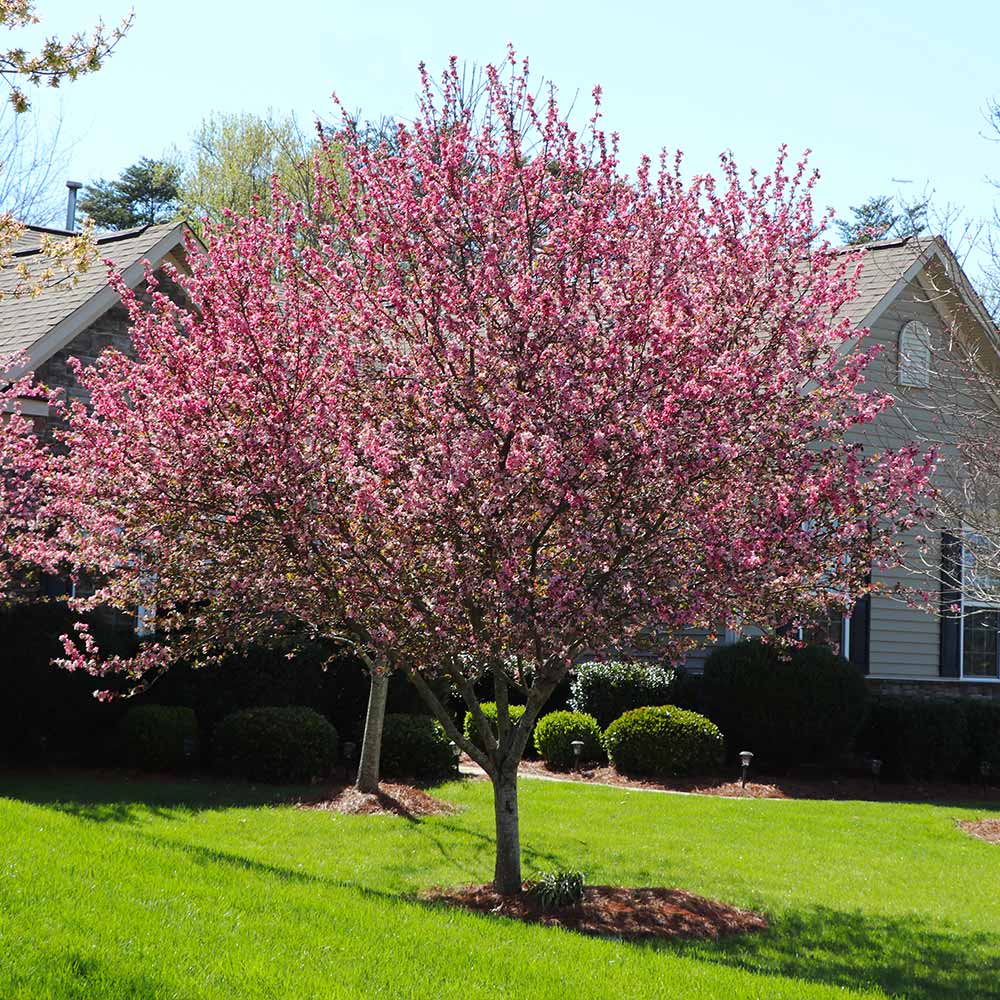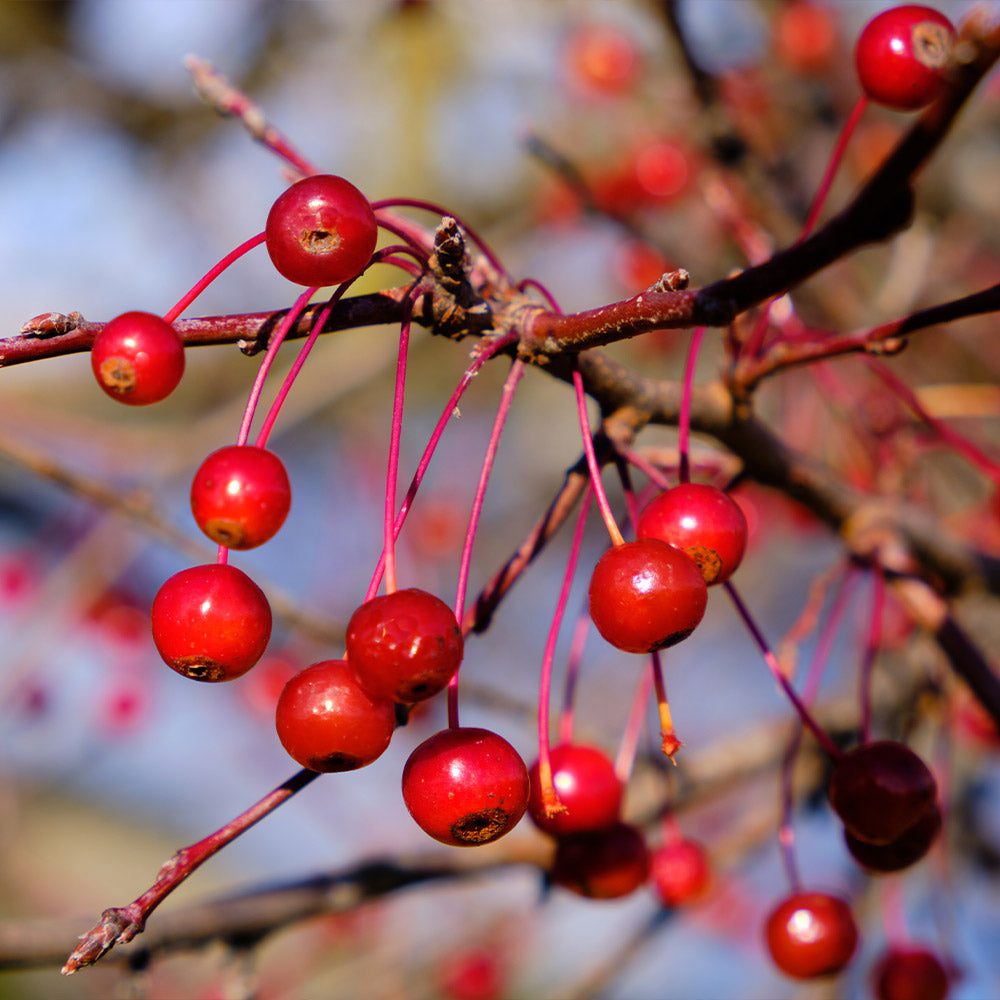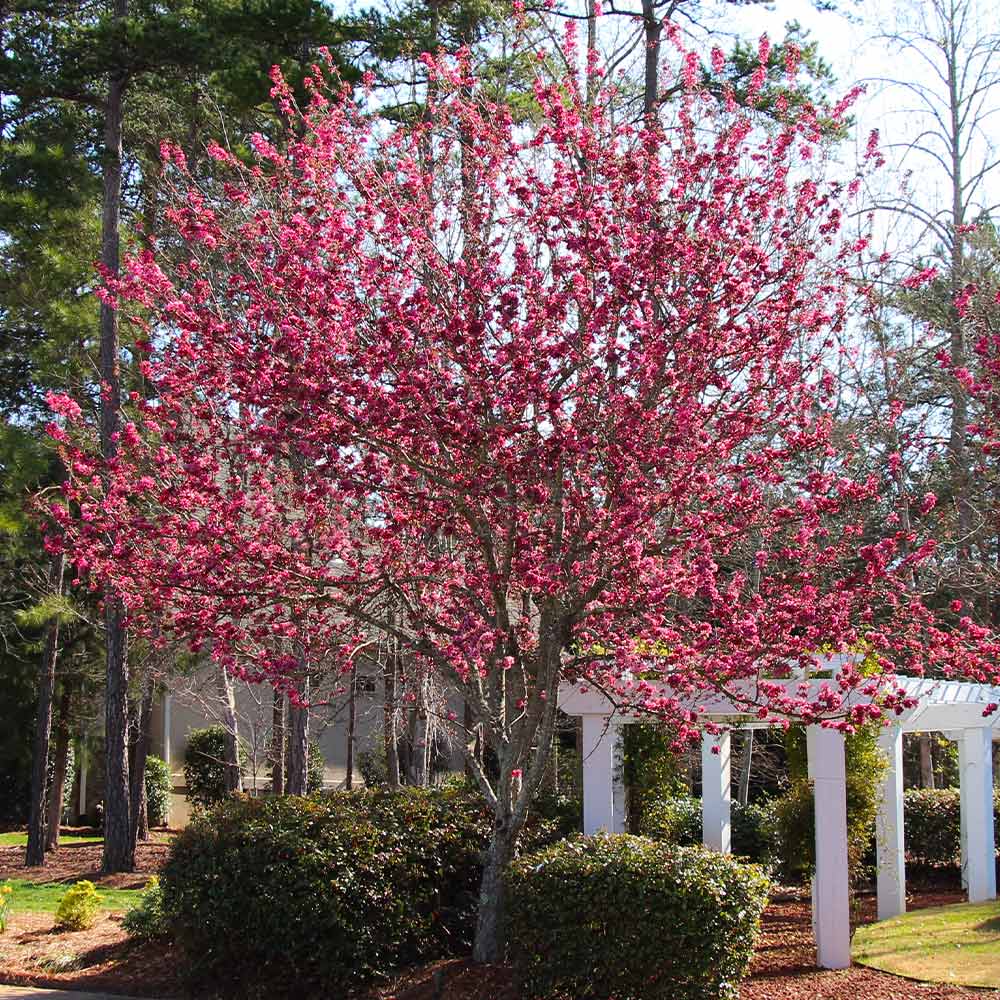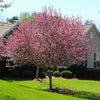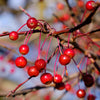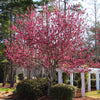* Images shown are of mature plants

Have questions? Talk with our Plant Experts (800) 973-8959
Save 25% on $200+ with code FALL25.
Questions? Call our plant experts: (800) 973-8959
Bright Pink Blooms Every Spring
Everyone loves the incredible color of the Robinson Crabapple. You get huge, soft pink blooms in the spring, decorative fruit in the fall and textured bark.
The new Robinson Crabapple resists many diseases and pest problems that some of the older varieties of crabapples were plagued by.
You also get to enjoy some of the first blooms of spring!
The Robinson Crabapple is an early season bloomer... soft pink blossoms and conspicuous fruit make this an ideal specimen tree.
You'll love how this fast-growing flowering tree attracts wildlife... birds and butterflies just can't resist its berries.
Robinson Crabapples are a huge hit because they're so unique. They grow up to 15-20 ft. tall, but still demand attention. Not only are they attractive, but they're extremely easy to grow. They make any beginner feel like a master gardener.
The Robinson Crabapple is one of our most popular flowering trees, so be sure to get yours now while we have them in stock.
Pollination Info
Robinson Crabapple Tree Pollination
Robinson Crabapple Trees are self-fertile. You will get fruit with only one plant. However, adding an additional Robinson Crabapple Tree will drastically increase the size of your crop.
Planting & Care
The Robinson Crabapple tree (Malus 'Robinson') is famously known for its eye catching pink flowers that bloom in early spring and red-purple fruit. The Robinsons are not only a favorite of birds and butterflies, they’re also pest and disease resistant. They thrive best in USDA growing zones 4-8 and prefer full sunlight exposure, but can also tolerate being planting partial sunlight. They Mature to a height of 15-20 feet tall/wide and as long as they receive at least 4 hours of direct sunlight daily they should still grow without inhibition. Since these trees are so versatile, they make an excellent addition to your landscape.
Location: Robison crabapples are best to plant in late fall to early winter or spring depending on your zone and climate. It’s best to choose a location about 2-4 weeks prior to planting so you can prepare your soil for planting.
Choose an area with well draining soil and full or partial sunlight. These trees prefer soil that is slightly acidic. You can use a pH tester to check your soil conditions, the pH should ideally be somewhere between 5.0 and 6.5.
Planting Instructions:
1) Dig a hole around the size of the nursery container the plant comes in. This is ideally 2-3 times the size of the root ball. If you are planting more than one tree, space them about 10-20 feet apart from one another.
2) Once you remove the plant from its container, loosen the soil around the root ball and gently separate the roots.
3) Place the rootball of your tree in the planting hole. Hold it straight and position so the base of the plant is level with the surface of the soil. Backfill the hole with the soil and planting mix you have prepared. Ensure that the tree is straight before firmly packing down the soil to remove any air pockets.
4) Water and gently tamp down around the planting site to further push out any additional air pockets, then apply a 3 inch mulch layer around the tree to conserve soil moisture and keep back competing growth.
Watering: Robinson Crabapples require at least one inch of water weekly. If you encounter drought or extreme heat during the summer, you will need to increase the amount to two inches. During the winter months or wet season you can reduce the amount of water needed depending on how much rain the tree receives.
Fertilization: It is best to feed these trees in the spring. You can apply a nitrogen based fertilizer like 10-10-10 or 20-5-10 formula. This is especially helpful if your trees appear to have a light, pale green leaves or doesn’t push out much foliage in the spring.
Pruning: Robinson Crabapples respond very well to pruning. It’s best to remove any dead, dying or damaged branches in early winter when the tree is dormant or in the summer after the tree has finished blooming.
Use sharp pruning shears to remove these branches at their point of origin on the stem. It’s also a good to remove any weeds from around the plant and any suckers that come up near the base of the tree. These will compete for nutrients with the tree and cause it to struggle.
Related Resources
Growing Zones Guide: Zone 5
If you’re located in Zone 5 and need some planting and care tips, check out our growing considerations and specific plant recommendations for your area ...
Read the full article
Apple Trees: Everything You Ever Wanted to Know
Updated: February 2021 From McIntosh to Granny Smith, apples are one of the most popular fruits in the world, with growers producing more than 240 ...
Read the full article
Shipping Details
Estimated Shipping Time: Most orders ship immediately. As noted on the website, some items are seasonal, and may only ship in spring or fall. Once your order is shipped, you'll receive an email with a tracking number.
| Amount of Order | Shipping Charge |
|---|---|
| Less than $49 | $19.95 |
| $49 + | FREE SHIPPING! |
Product Details
| Mature Height: | 15-20 ft. |
| Mature Width: | 15-25 ft. |
| Growth Rate: | Moderate Growing |
| Botanical Name: | Malus 'Robinson' |
| Does Not Ship To: | AK, AZ, CA, HI, ID, OR, WA |
| Grows Well In Zones: | 4-8 outdoors |
| Your Growing Zone: | # |
